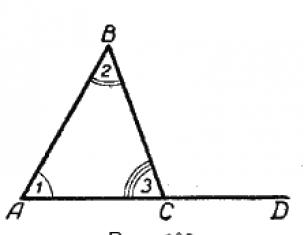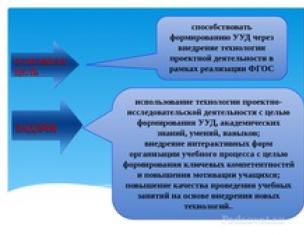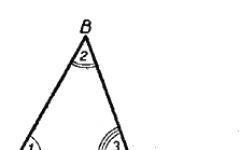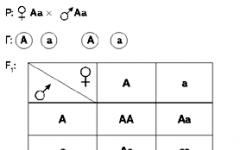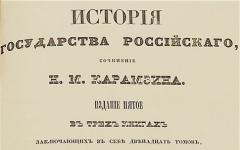Year: 1963 Genre: story
Main characters: Grandmother and her grandson Vitya
"Horse with pink mane“- Astafiev’s story about how a boy deceived his grandmother, and what he suffered for it. The events take place in a taiga village on the banks of the Yenisei in the 1960s. The story is told in the first person: an adult man who recalls a story of deception from his childhood. Only by apologizing to his grandmother, on the advice of his grandfather, did the boy receive the treasured horse.
The main theme of the story is growing up, the formation of a person’s personality. The author shows how a minor episode in life can completely change your worldview.
Conclusion. Victor Astafiev’s story “The Horse with a Pink Mane” conveys unusual examples of how a person’s character develops, how a child’s personality is formed. The boy admits his guilt, and his punishment is an unpleasant feeling of shame and humiliation, which he wants to quickly get rid of and never experience again. The story teaches mercy and kindness, love and repentance.
Read the summary of A horse with a pink mane Astafieva
3The author of the story “The Horse with a Pink Mane” in the role of an orphaned boy lives with his grandmother. Neighbors live next to them - the Levontia family. This is an ordinary family of bunglers, whose members are alien to peace and quiet. Looking at the example of the fence, it is immediately clear that they do not take the matter seriously.
The head of the family, Levontii, is a former sailor and a drinker. When he received money, his wife ran around the village and distributed debts. The boy loved to visit them because he immediately became an object everyone's attention from onlookers. But my grandmother told me not to go to my neighbors and not to eat them.
One day the children decided to go into the forest to pick berries. The author's grandmother promised to buy a gingerbread in the shape of a horse for a basket of berries. The horse is the personification of a man of labor, and the whole plot of the story is tied around him. He himself was white, and his mane, hooves, eyes and tail were pink. With such a gingerbread, the boy became the center of attention of everyone around him: you can ask the guys anything for the right to bite off a piece of this horse.
When the boy picked the berries, the local mischief maker Sanka took it “weakly,” and all the berries had to be distributed to the boys. Then they frolicked and played mischief until the evening. They caught a fish on the river and tore it to pieces. They hit a swallow with a stone so that it died. They ran into a cave in which evil spirits lived. Only in the evening did the boy remember the empty box that his grandmother gave him for berries.
Sanka suggested filling the box with grass and sprinkling strawberries on top. The author liked the idea and did just that. The grandmother did not notice anything, she was even happy, saying that she would sell it like that. Rejoicing, the boy told Sanka about this. The cunning boy demanded a kalach for his silence. The author carried the rolls until Sanka was full.
Before going to bed, the boy thought about deception and theft. He decided not to sleep at all, but to wait for his grandmother to wake up and tell her everything. But sleep took its toll. When the author woke up, the grandmother was no longer there.
He spent the whole day on the river with Sanka. They caught fish, fried it, but the thought of deception could not leave their heads. The boy constantly thought about how his grandmother would punish him. Sometimes the thoughts were simply monstrous: maybe the boat on which the grandmother sailed would capsize and she would drown. But, remembering his drowned mother, the boy drove away such thoughts. Sanka suggested portraying himself as lost in order to evoke grief and tears from his grandmother. But the author firmly decided not to listen to his comrade anymore.
In the evening the grandmother returned. The author ran away from her and played until dark. I didn’t want to return home; I thought I’d spend the night with friends. But Aunt Fenya took the boy away by the hand. He lay down in the closet. Aunt Fenya was talking about something with her grandmother. Then she left and it became quiet. The author guessed that his deception was exposed.
The boy lay and remembered the day his mother drowned. Grandmother did not leave the shore, she called her, hoping for some kind of mercy from the river. Only on the sixth day she was taken home. And there she lay on the floor and moaned loudly. Later, the boy learned that the boat on which his mother was sailing was filled with grandmothers and their goods. Under such weight she turned over. The mother hit her head on the pier and got caught in her scythe. They couldn’t find her for a long time until her hair was torn off.
In the morning the boy saw his grandmother, who was telling his grandfather, who returned at night, about his trip. The box of strawberries that the orphan was picking was immediately bought by some lady. A neighbor came, and the grandmother began to tell her the same story with deception, wailing and lamenting that the little liar would grow up. She told many people that morning about her grandson’s misdeed.
The boy still lay in the closet, immersed in his thoughts about deception. He wanted to collapse from shame, and even die. Grandfather came in. He stroked his grandson, and he burst into tears. Grandfather advised me to sincerely ask for forgiveness.
The boy entered the hut, but because of his tears he could not say anything to his grandmother, except for some incoherent words that vaguely resembled an apology. The woman sent her grandson to wash and sat him down at the table for breakfast. Grandfather was there for support. The boy realized that he needed to stop cheating and also have his own opinion. By sometimes listening to others, sometimes doing wrong, you can adult life end up in prison.
Sobbing, the boy sat at the table with his head bowed. And when he looked up, he saw a gingerbread cookie in front of him - a white horse with a pink mane. The boy closed his eyes and opened them again, not believing that this was all real.
Picture or drawing of a horse with a pink mane
Other retellings and reviews for the reader's diary
- Summary of Ostrovsky Forest
The story begins with Aksyusha being pestered by Bulanov (a loser student). He thinks that he is the lady’s favorite, so everything is allowed to him. However, they object to him that the master’s will changes seven times a day; it is best to influence the lady herself
- Summary of Bulgakov White Guard
The events of the novel take place in frosty December 1918. The Turbinnykh's mother dies. Alexey, Lena and Nikolka are grieving the loss of a loved one.
- Summary Shukshin Vanka Teplyashin
Vanka Teplyashin is a young village guy. He works as a driver. One day he was diagnosed with a disease, a duodenal ulcer. The driver was admitted to the hospital, first he was treated in his native village, and then transferred to the city.
- Summary of Iskander's stage martyrs
Evgeniy Dmitrievich worked as an artist in drama theater and one day he went to school to interest and invite children to study acting. When the actor entered the classroom and explained the purpose of his visit
- Summary of Odoevsky Poor Gnedko
Vladimir Odoevsky’s story “Poor Gnedko” begins with a horse and chaise running along the central embankment, where the Neva River flows nearby. The main observer of this scene is the author
In this article we will talk about the story “The Horse with the Pink Mane.” Astafiev Viktor Petrovich, the author of the work, has long been included in school curriculum. The writer often turned to the village theme. The one we are considering is one of these stories. In the article we will take a closer look at the images of the main characters of the work and its summary.
Structure and brief description of the story
The story is narrated in the first person. By using colloquial speech reproduces the unique Siberian dialect Astafiev. “The Horse with a Pink Mane,” whose main characters are distinguished by their original speech, full of dialectisms, is also rich in figurative descriptions of nature: the habits of animals and birds, rustles and sounds of the forest, river landscapes.
Now let's talk about the structure of the work:
- The beginning - the narrator with other children goes to the forest to pick up strawberries.
- Climax - main character steals rolls and deceives his grandmother.
- Denouement - the narrator is forgiven and rewarded with a carrot “horse”.
Astafiev, “A Horse with a Pink Mane”: a summary
The grandmother sends the narrator with the neighboring children to the ridge to buy strawberries. If the hero collects a hollow tuesk, then she will buy him a reward - “carrot with a horse.” This gingerbread, made in the shape of a horse with a tail, mane and hooves in pink glaze, was cherished dream all the village boys and promised them honor and respect.
The narrator goes for strawberries with the children of Levontius, their neighbor, who worked as a logger. Depicts village inhabitants of different levels of life and wealth, Astafiev (“Horse with a Pink Mane”). The main characters and his family are very different from Levontiev's. So, every 15 days, when Levontius received his salary, a real feast began in their family, where there was usually nothing. And Vasena, Levontius’s wife, ran around distributing debts. At such a time, the narrator tried to get into the neighbor's house at any cost. There he was pitied as an orphan and treated to goodies. But the grandmother did not let her grandson in, she does not want him to communicate with the Levontievskys. However, the money quickly ran out, and after a couple of days Vasena was again running around the village, already borrowing.

The Levontiev family lived poorly, they didn’t even have their own bathhouse. And the tyn, built every spring, was dismantled for kindling in the fall.
Meanwhile, the main characters went berry picking. Astafiev (“The Horse with a Pink Mane” is a very indicative work in this regard) depicts not only social differences between families, but also moral ones. When the narrator had already picked an almost full basket of strawberries, the Levontyevskys started a quarrel because the younger children were eating the berries instead of picking them. A fight broke out, and all the strawberries were poured out of the bowl, and then eaten. After that, the guys went to the Fokinskaya River. And then it turned out that our hero still had the whole berry. Then Sanka, the eldest Levontiev boy, encouraged the narrator to eat it, taking it “weakly.”
Only in the evening did the narrator remember that his closet was empty. He was afraid to return home empty-handed. Then Sanka “suggested” what to do - put herbs in the dish and sprinkle it with berries.
The deception has been revealed

So, now we can answer the question of who are the main characters of the story. V.P. Astafiev, as it is not difficult to notice, focuses attention not only on the narrator. Therefore, we can also count Sanka and grandmother among the main characters.
But let's get back to the story. The grandmother praised her grandson for the rich booty and decided not to pour too many strawberries - just take them to sell. On the street, Sanka was waiting for the narrator, who demanded payment for his silence - rolls. The narrator had to steal them from the pantry until the neighbor's boy had eaten enough. At night, his conscience did not let the hero sleep, and he decided to tell everything to his grandmother in the morning.
But the grandmother left before the main character of the story “The Horse with the Pink Mane” woke up. Vitya went fishing with Sanka. There, from the shore, they saw a boat on which a grandmother was sailing, shaking her fist at her grandson.
The narrator returned home late in the evening and went to the pantry to sleep. The next morning the grandfather returned from borrowing, who ordered to ask for forgiveness from the grandmother. Having scolded the hero, Katerina Petrovna sat him down to have breakfast. And she brought him a gingerbread, the same “horse”, the memory of which remained with the hero for many years.
The main character of the story “The Horse with a Pink Mane”

The main character of the work is Vitya. This boy lost his mother and now lives in a Siberian village with his grandparents. Despite the difficult times for the family, he was always shod, clothed, fed and well-groomed, because both his grandparents took care of him. Vitya was friends with the Levontiev children, which Katerina Petrovna did not like, since the latter were poorly educated and hooligans.
All the main characters turned out to be very expressive. Astafiev (“Horse with a Pink Mane”) depicted them with his own unique features. Therefore, the reader immediately sees how different Vitya is from the Levontiev children. Unlike them, he thinks not only about himself, he knows what responsibility and conscience are. Vitya is well aware that he is doing wrong, and this torments him. While Sanka is simply taking advantage of the situation to fill his belly.
Therefore, the incident with the gingerbread shocked the boy so much that he remembered it for the rest of his life.
Grandma's image

So, who are the other main characters in the story? V. P. Astafiev, of course, pays great importance the image of Katerina Petrovna, Vitya’s grandmother. She is a representative of the previous generation, very sociable and talkative, thorough and reasonable, and thrifty. When Vasena tries to give back more money than she borrowed, her grandmother reprimands her, saying that she can’t handle money like that.
Katerina Petrovna loves her grandson very much, but she raises him strictly, is often demanding, and scolds Vitya. But all this is because she is worried and worried about his fate.
Grandma is the head of the house, she always commands everything, so her remarks usually sound like orders. However, Katerina Petrovna can also be delicate, which is evident in her conversation with the strawberry buyer.
Sanka

The Levontiev children are also the main characters in the story. Astafiev (“The Horse with a Pink Mane”) singles out the eldest among them, Sanka. This is a reckless, greedy, evil and unprincipled boy. It is Sanka who forces Vitya to first eat the berry, then lie to his grandmother, and to top it off, steal rolls of bread from the house. He lives by the principle “if everything is bad for me, then it should be the same for everyone.” He does not have the same respect for elders that Vitya has.
Uncle Levontius
Little is said about Uncle Levontius; he is described only at the beginning of the work. a man, a former sailor, who retained a love of freedom and the sea. He treats Vita very kindly and feels sorry for him - “he’s an orphan.” But Levontius has one negative trait The thing that prevents him from living well is drunkenness. There is no wealth in their family because there is no owner. Levontii lets everything take its course.
These are the main characters in the story. Astafiev (“The Horse with a Pink Mane” is an autobiographical story) put a lot into the characters and into the story from his childhood. This is probably why all the characters turned out to be so alive and original.
Victor Astafiev's story “The Horse with a Pink Mane” is autobiographical. The author wrote about an episode of his childhood, which he still remembers, how, in order to get a gingerbread in the shape of a horse with a pink mane, he deceived his grandmother, the neighbor boy Sanka suggested it to him. The story is written from the perspective of the boy Vitya.
In contact with
Summary of the story “The Horse with the Pink Mane”
Vitya with the Levontiev children goes to the ridge to buy strawberries. Grandmother Katerina Petrovna promised the boy that she would sell his strawberry cake and bring him a gingerbread in the shape of a horse with a pink mane. The boy collected almost more than half of the tuesk. But neighbor Sanka provoked him to pour all the berries onto the grass, and Levontiev’s “horde” ate everything.
Then the guys played around the river all day, and when the day was setting, they had nothing to return home with. The cunning Sanka taught Vitya to push some grass into the jar and sprinkle it with a handful of berries. Fearing his grandmother, he did just that. Although he knew that retribution was inevitable.
Grandma took berries to the city market, suspecting nothing, the deception was revealed only during the sale. When Katerina Petrovna sailed from the city, the next day she gave her grandson a scolding in the form of telling everyone she met what a swindler he was and what he would grow out of.
Vitya already repented, fortunately, on that day his grandfather returned from the farm, who felt sorry for his grandson, he told him that there was nothing to do, he had to ask his grandmother for forgiveness. The grandmother forgave, and saved the gingerbread for her grandson.
A brief retelling of the story “The Horse with the Pink Mane”
Plan brief retelling"Horse with a pink mane":

Let us now consider each point in more detail..
The story begins with the fact that the grandmother came from the neighbors; their guys were going to go to the ridge to buy strawberries. And she told her grandson to go with them, in return she would bring him gingerbread. This is the dream of all village boys; its owner is worthy of respect and honor.
Further, the author talks about neighbors: Uncle Levontia, his wife Vasena and a bunch of their children. Uncle Levontius was engaged in logging. On the day of payday, they had a huge feast in their house, and Uncle Levontius’s wife Vasenya went to pay off debts, including to grandmother Katerina, and with a small amount of debt of 7 or 10 rubles.” For Vitya, it was his life’s goal to sneak into Uncle Levontius’s house on the day of his salary, to listen to a song about “little licker.” Levontius pitied Katerina Petrovna’s grandson, like an orphan, and always sat him down at the table. The feast always ended with Levontius's brawl, and his wife again began to go borrow from neighbors until her next paycheck.
Vitya went with the Levontiev boys to pick strawberries. On the way to the ridge, the kids play around and do mischief, for example, they wandered into someone’s garden, and there was nothing there except onions, so they picked them too. On the ridge, the Levontievsky guys started a fight and ate all the strawberries that they had picked. Sanka was the most harmful and evil instigator, he called Vitya a greedy person and took it “weakly”, he poured out all his strawberries, which the Levontievskys instantly swept away.
The rest of the day the children ran by the river, and in the evening the same Sanka persuaded Vitya to deceive his grandmother and push the herbs into the basket and sprinkle the berries on top. So he did, and the grandmother did not notice anything, she even praised him. Then the boy boasted to Sanka about what he had done, and he said that he would tell his grandmother everything, and Vitya stole rolls from his grandmother for him.
At night the boy could not sleep for a long time, he already terribly repented of what he had done and wanted to confess everything to his grandmother himself, but did not disturb her sleep, and early in the morning she sailed in a boat to the city to the market to sell berries.
 The next day, tormented by a heavy premonition about what will happen when the grandmother returns from the city, because the deception will still be revealed, Vitya goes fishing with Sanka and his guys. Sanka again offers Vitka a “plan” - to run away from home and hide. Vitya has already protested to this.
The next day, tormented by a heavy premonition about what will happen when the grandmother returns from the city, because the deception will still be revealed, Vitya goes fishing with Sanka and his guys. Sanka again offers Vitka a “plan” - to run away from home and hide. Vitya has already protested to this.
In the evening, the granny returned from the city and, seeing the boat, the boy ran away. He thought of spending the night with his cousin Kesha, but his mother, Aunt Fenya, fed him, questioned him and took him home herself.
The boy spent that night in the closet in the hallway, there was a bed made of rugs. In the morning he saw that he was covered with his grandfather's sheepskin coat, which he was very happy about, since his grandfather always stood up for his grandson. This time too, the grandmother was seriously angry, because it was only at the market that her grandson’s fraud was discovered. She told everyone whom Katerina Petrovna met that day about her grandson’s scam.
The grandmother forgave her grandson after he asked her for forgiveness, but still brought him the gingerbread with the horse.
What is the story “The Horse with the Pink Mane” about?
The content of the story is very instructive. Through him, the reader sees how a little boy is deeply worried about the deception into which he is drawn in by a neighbor boy from a dysfunctional family, who tries to dominate everyone with his authority. Vitya understands how much his grandmother, who often scolds him, despite his business, loves him immensely. That is why she brought gingerbread to her grandson, despite his deception. Because she understood where “legs grow” from, the school of the neighbor’s children.
 The story raises three moral issues:
The story raises three moral issues:
- Honesty;
- Debt;
- Kindness.
Another lesson the reader can learn from the story is not to be afraid to ask for forgiveness and always tell the truth, even if it is very embarrassing and difficult.
Retelling plan
1. Gingerbread “horse” is the dream of all village kids.
2. The life of the family of Uncle Levontius and Aunt Vasenya.
3. The children go to pick strawberries.
4. Fight between the Levontiev brothers.
5. The boy and the Levontiev children eat strawberries.
6. Games on the Malaya River.
7. Deception. Theft of rolls.
8. A group of guys goes fishing.
9. Pangs of conscience.
10. Return of Grandma.
11. The boy, not wanting to return home, goes to cousin Keschke.
12. Aunt Fenya takes the hero home and talks to his grandmother.
13. Night in the pantry.
14. Return of the grandfather. The grandmother forgives her grandson and gives him the treasured gingerbread.
Retelling
The hero of the work is an orphan, he lives with his grandparents. We learn that a horse with a pink mane is an extraordinary gingerbread, the dream of all village children. The hero’s grandmother promises to buy this gingerbread by selling the strawberries that the boy has to pick. This simple task becomes a real test for him, since he has to go with the neighboring children, the children of Uncle Levontius and Aunt Vasenya.
Uncle Levontius's family lives poorly, but brightly. When he receives his salary, not only they, but also all the neighbors are seized by some kind of “restlessness, fever.” Aunt Vasenya quickly pays off debts, and one day everyone is walking recklessly, and after a few days they have to borrow again. Their attitude towards
life is shown through the attitude towards the house, in which “there were only children and nothing else.” Their windows are glazed somehow (they are broken out quite often by a drunken father), and in the middle of the hut there is a stove that has become “loose.” These details emphasize that Uncle Levontius’s family lives as they have to, without hesitation.
The hero of the story, being close to the Levontiev children, falls under their influence. He witnesses a fight between brothers. The elder is dissatisfied that the younger ones do not so much pick strawberries as eat them. As a result, everything collected is eaten. They bully, saying that the narrator is afraid of his grandmother and is greedy. Wanting to prove the opposite, the boy gives them all the collected berries. This is a turning point in his behavior, since then he does everything as they do, becoming one of the “Levontiev horde.” He is already stealing rolls for them, ruining someone else’s garden, deceiving them: on Sanka’s advice, he fills the roll with grass, and sprinkles strawberries on top of the grass.
Fear of punishment and pangs of conscience do not allow him to sleep. The boy does not tell the truth, and the grandmother leaves to sell berries. The pangs of conscience are becoming more and more strong, nothing pleases the hero anymore: neither the fishing trip he went on with the Levontievskys, nor the new ways to get out of the situation proposed by Sanka. It turns out that peace and tranquility in the soul are the best blessings in the world. The boy, who does not know how to make amends for his guilt, on the advice of his grandfather, asks his grandmother for forgiveness. And suddenly the very same gingerbread appears in front of him, which he had never hoped to receive: “How many years have passed since then! How many events have passed! And I still can’t forget my grandmother’s gingerbread - that marvelous horse with a pink mane.”
The boy receives a gift because his grandmother wishes him well, loves him, wants to support him, seeing his mental suffering. You cannot teach a person to be kind without giving him your kindness.


